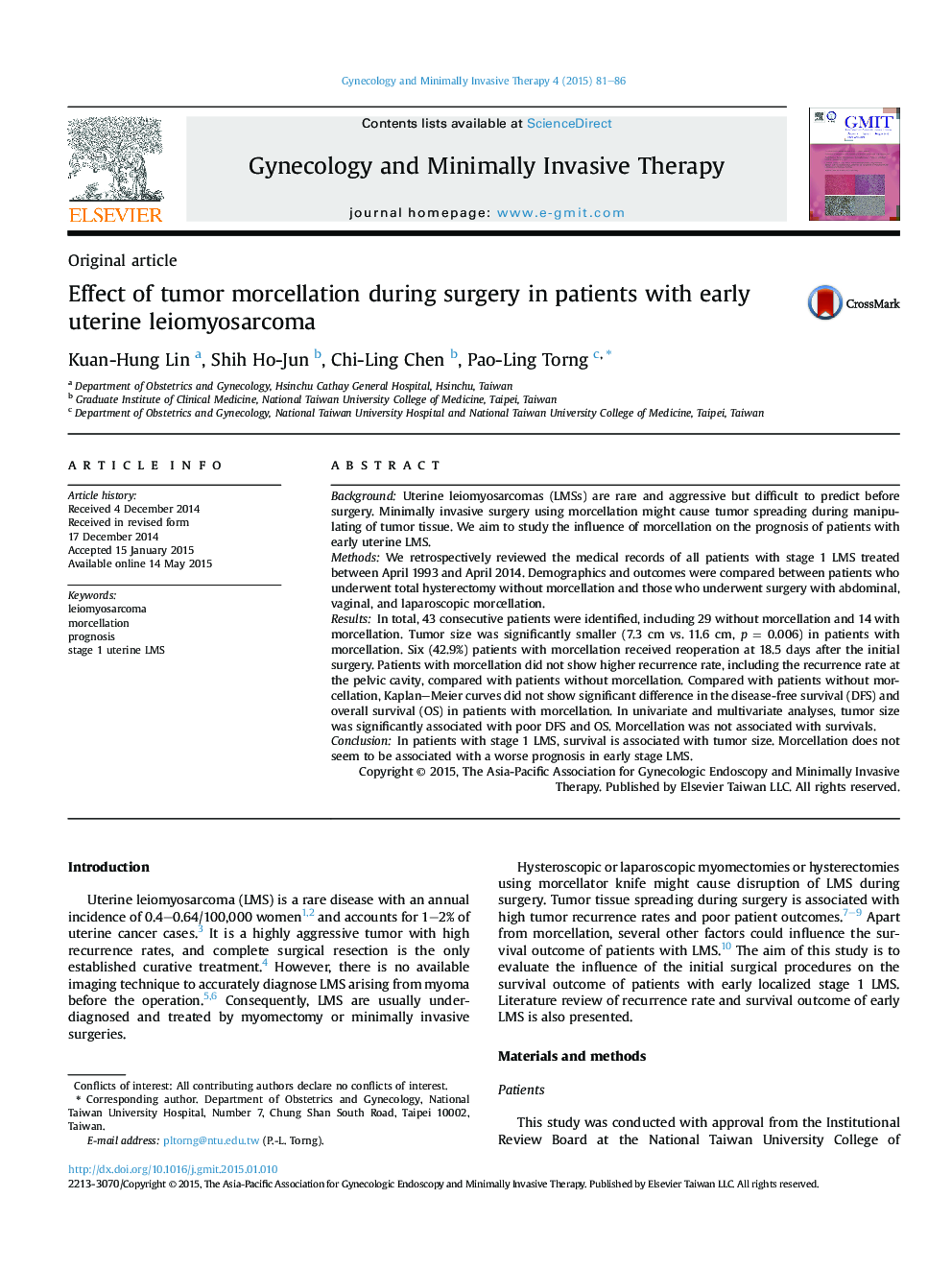| Article ID | Journal | Published Year | Pages | File Type |
|---|---|---|---|---|
| 3953678 | Gynecology and Minimally Invasive Therapy | 2015 | 6 Pages |
BackgroundUterine leiomyosarcomas (LMSs) are rare and aggressive but difficult to predict before surgery. Minimally invasive surgery using morcellation might cause tumor spreading during manipulating of tumor tissue. We aim to study the influence of morcellation on the prognosis of patients with early uterine LMS.MethodsWe retrospectively reviewed the medical records of all patients with stage 1 LMS treated between April 1993 and April 2014. Demographics and outcomes were compared between patients who underwent total hysterectomy without morcellation and those who underwent surgery with abdominal, vaginal, and laparoscopic morcellation.ResultsIn total, 43 consecutive patients were identified, including 29 without morcellation and 14 with morcellation. Tumor size was significantly smaller (7.3 cm vs. 11.6 cm, p = 0.006) in patients with morcellation. Six (42.9%) patients with morcellation received reoperation at 18.5 days after the initial surgery. Patients with morcellation did not show higher recurrence rate, including the recurrence rate at the pelvic cavity, compared with patients without morcellation. Compared with patients without morcellation, Kaplan–Meier curves did not show significant difference in the disease-free survival (DFS) and overall survival (OS) in patients with morcellation. In univariate and multivariate analyses, tumor size was significantly associated with poor DFS and OS. Morcellation was not associated with survivals.ConclusionIn patients with stage 1 LMS, survival is associated with tumor size. Morcellation does not seem to be associated with a worse prognosis in early stage LMS.
